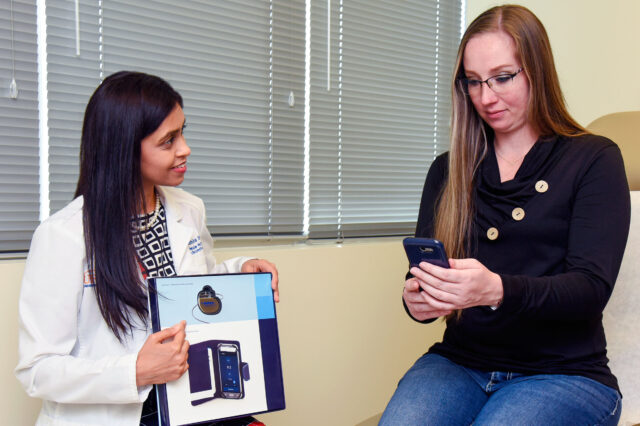Fecal (bowel) incontinence in women

If you have fecal (bowel) incontinence, you are not alone. It is a condition that affects millions of Americans, especially older adults, yet it can be successfully treated and does not have to become an accepted part of aging. Our experts at UF Health Jacksonville have solutions that will allow you to regain control and improve your quality of life.
Fecal incontinence, also referred to as accidental bowel leakage, is the inability to control your bowels. You may experience a small leakage or total loss of control. Depending on what’s causing your symptoms, treatment may include medications, dietary changes, bowel training or surgery.
Fecal incontinence: Symptoms
Whether your symptoms are occasional or occur most of the time, our care team can help you find relief. Don’t put off talking with your doctor if you have the following symptoms:
- Leakage of stool in your undergarments
- Difficulty getting to the bathroom on time
- Constant or sudden urges to defecate
Fecal incontinence: What to expect
We understand that having fecal incontinence can be difficult or embarrassing to discuss. When you come to UF Health, our care team focuses on creating a stress-free environment where you can feel comfortable talking with our specialists and learning more about your condition.
At UF Health, we have physicians from many disciplines trained to diagnose and treat this condition or offer you a second opinion. They will begin by finding the cause of your symptoms, which will allow them to determine the best possible treatment options.
- Diagnosis may include a physical exam, and potentially additional tests and imaging such as an MRI if needed.
- If you're a woman with fecal incontinence, your symptoms could be caused by problems with your pelvic floor, a condition that is treated by our UF Health physicians who specialize in Urogynecology and Reconstructive Pelvic Surgery.
Fecal incontinence: Treatments
With many causes of fecal incontinence, there are also many treatment options. Here are a few your physician may discuss with you:
- Dietary changes, such as eating smaller meals and avoiding caffeine
- Medication to help slow down the bowel
- Pelvic floor physical therapy including biofeedback to strengthen the pelvic muscles
- Sacral neuromodulation, which includes the placement of an implantable device, to stimulate the pelvic nerves and significantly improves bowel incontinence
